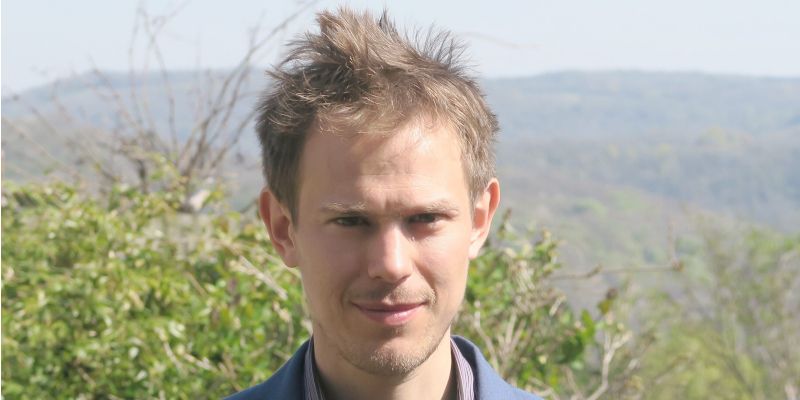
A University of Leeds data expert has been awarded a prestigious Fellowship, working in the heart of government.
Dr Robin Lovelace, from Leeds’ Institute for Transport Studies and Leeds' Institute for Data Analytics, will work with 10 Downing Street’s data science team and the Office for National Statistics (ONS) on issues ranging from decarbonisation to the Government’s levelling-up agenda.
As part of this new role, he will co-design research and produce analysis using new and existing data to inform national policy.
Dr Lovelace is an Associate Professor of Transport Data Science, focusing on geographic and computational methods for sustainable transport policies.
He said: “This is a unique opportunity to support more evidence-based, data-driven and participatory decision making processes at the highest levels.
“The Fellowship will allow me to make the best use of my expertise to support the needs of central government.
“My skills are well placed to support the government in harnessing the power of data science to tackle pressing policy objectives, including decarbonisation and the government's levelling-up agenda.
“Translating high level policies such as full decarbonisation into local interventions is a major political and technical challenge and data science can help identify effective interventions and ensure investment goes where it is most needed.”
Linking government and academia
Dr Lovelace, who is also a fellow of the Alan Turing Institute, will work closely with 10 Downing Street and ONS’ Science Campus to formulate research projects.
He will also help champion data science across central government and help strengthen important engagement between government and academia in the UK.
Professor Simon Shepherd, Director of Leeds’ Institute for Transport Studies, said: “This prestigious fellowship is well deserved.
“New forms of data are increasingly important in understanding travel behaviours and in improving our methods for modelling transport systems. Robin's skills will be invaluable in translating data into advice on both policy and future methods.”
The one-year Fellowship, which starts in January 2022, is funded by the Economic and Social Research Council (ESRC) and Administrative Data Research (ADR UK).
A second Fellowship has been awarded to Dr Federico Botta, a lecturer in data science at the University of Exeter.
World class data skills
Alex Jones, Head of Evidence and Transformation (10DS) at 10 Downing Street, said: “The UK’s universities are home to world-class data science skills and talent.
“We are seeing ever-increasing demand for this expertise in government, and I’m delighted that through this scheme, No. 10, as well as the ONS and other departments will be able to benefit from the specialist expertise of Federico and Robin.”
Dr Arthur Turrell, Deputy Director at ONS’ Data Science Campus, added: “I am extremely excited about the creation of these prestigious data science fellowships, and that No. 10 and ONS—plus the many departments we work with—will be benefitting from Robin and Federico’s extensive expertise.
“The potential for data science to deliver for the public good is enormous and these fellowships provide another channel for methods from the frontier of that field to address the most pressing issues in public policy.”
Further information
Robin Lovelace is an Associate Professor of Transport Data Science at the Leeds Institute for Transport Studies. He researches, develops, and teaches free, open and scalable techniques for working with data to support evidence-based policies. Robin has written many papers and books on transport planning, energy, geographic data analysis and modelling. His interests include geo-computation, transport modelling and geographic data analysis. Robin is a fellow of the Alan Turing Institute, the UK’s national institute for data science and artificial intelligence.
Image credit: Robin Lovelace
For more information, contact Ian Rosser in the Media Relations Team at the University of Leeds by email on i.rosser@leeds.ac.uk.